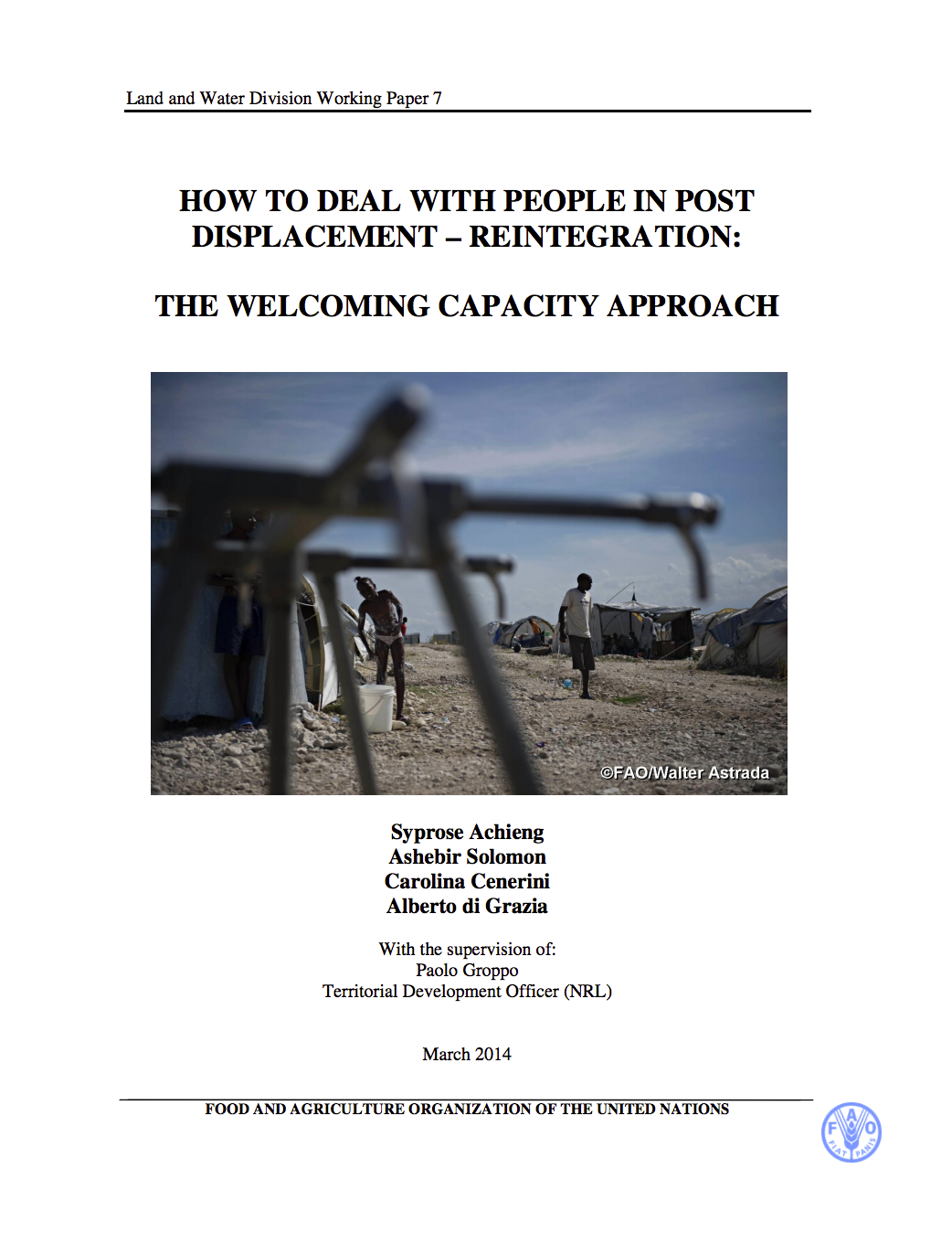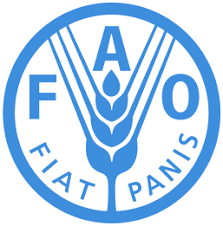Focal point
Location
The Food and Agriculture Organization of the United Nations leads international efforts to defeat hunger. Serving both developed and developing countries, FAO acts as a neutral forum where all nations meet as equals to negotiate agreements and debate policy. FAO is also a source of knowledge and information. We help developing countries and countries in transition modernize and improve agriculture, forestry and fisheries practices and ensure good nutrition for all. Since our founding in 1945, we have focused special attention on developing rural areas, home to 70 percent of the world's poor and hungry people.
Members:
Resources
Displaying 2106 - 2110 of 5074How to deal with people in post displacement - reintegration: the welcoming capacity approach
In conflict situations, peace settlements and cease-fire agreements may often, end violent conflicts, but do not prevent renewed violence or guarantee a permanent end to conflicts.5 According to the World Bank, chances that renewed conflicts will erupt are high and even higher when control over natural resources is at stake.6 In the past two decades alone, Africa has experienced violent conflicts with successive cease-fire agreements and peaceful settlements, which have often been followed by outbreaks of new conflicts.
VGGT: Contribution of the Land Governance Assessment Framework (LGAF) to integrating Voluntary Guidelines principles in country level action plans
The “Voluntary Guidelines on Responsible Governance of Tenure of Land, Fisheries, and Forests in the Context of National Food Security” (VGGT), endorsed by the Committee on World Food Security (CFS) in 2012, set out principles and internationally accepted standards for responsible practices and is the first comprehensive intergovernmental global instrument on tenure and its administration.
Adapting to climate change through land and water management in Eastern Africa: Results of pilot projects in Ethiopia, Kenya and Tanzania
FAO-Sida report providing evidence and lessons learned from a climate adaptation pilot project in Kenya, Tanzania, and Ethiopia.
Governing land for women and men: A technical guide to support the achievement of responsible gender-equitable governance of land tenure
This technical guide on Governing land for women and men aims to assist implementation of the Voluntary Guidelines on the Responsible Governance of Tenure of Land, Fisheries and Forests in the Context of National Food Security (FAO, 2012b) by providing guidance that supports the Guidelines’ principle of gender equality in tenure governance. At the beginning of each module, reference is made to the relevant provisions in the Guidelines.
Improving governance of forest tenure: A practical guide
Decisions about resource tenure – or who can use what resources of the land for how long, and under what conditions – are among the most critical for forests and livelihoods in many contexts.










